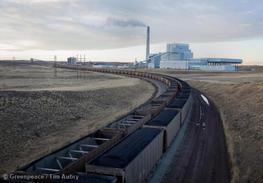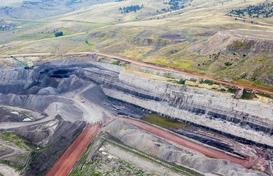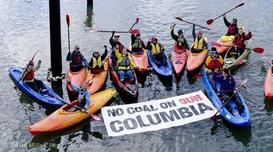|
Resource Capital Funds is pushing controversial coal export proposals that would disrupt communities in the Pacific Northwest, fuel climate change and air pollution, and interfere with tribal fishing rights on the Columbia River.
Resource Capital Funds is a private equity fund with offices in Denver, New York, Canada, and Australia - though it is registered in the Cayman Islands for tax purposes. The company has played a quiet but important role in the coal industry's efforts to export coal to Asia by bankrolling Ambre Energy, the company behind the Millennium Bulk and Morrow Pacific coal export proposals in Oregon and Washington. But while some investors like Goldman Sachs have dropped their support of coal exports amid a declining global coal market and widespread community opposition, Resource Capital Funds has done just the opposite - in November 2014, it boosted its involvement by taking control of Ambre Energy's coal mines and export proposals. That's why thousands of people are calling on Resource Capital Funds to drop its investment in coal exports. Learn more about Resource Capital Funds' controversial plans, the environmental damage from coal mining and exports, and the widespread opposition to coal exports from communities and tribes. |

Resource Capital Funds purchased Ambre Energy's coal export proposals amid declining coal markets, a key permit denial, and widespread opposition - even Ambre's board admitted to a "significant reduction" in the company's value. Get the details on Resource Capital Funds' risky coal export proposals.
|

Resource Capital Funds' coal export proposals would increase coal strip mining, disrupt communities, and fuel climate change and air pollution. Learn more about the environmental damage of Resource Capital Funds coal mining and export proposals.
|

Elected officials, health professionals, tribal leaders, and concerned citizens are speaking out against coal export proposals in the Pacific Northwest, and thousands of people have called on Resource Capital Funds to stop funding these controversial proposals. Read about how communities are working together to stop coal exports, and how to get involved.
|
